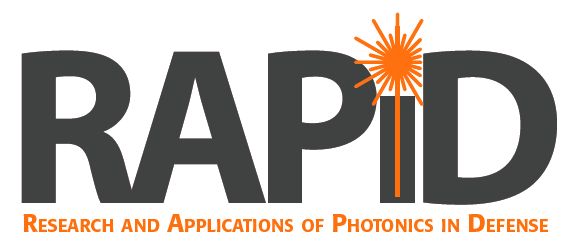Keynote & Plenary Speakers
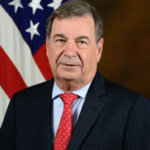
Keynote Speaker
Greg L. Zacharias
Chief Scientist
Operational Test and Evaluation
Office of the Secretary of Defense
Greg Zacharias Bio:
Dr. Greg Zacharias serves as Chief Scientist to the Director of Operational Test and Evaluation, providing scientific and technical (S&T) guidance on the overall approach to assessing the operational effectiveness, suitability, and survivability of major DOD weapon systems. He advises the DOT&E on matters dealing with critical technology areas including: emerging technologies; modeling and simulation; human-systems integration; and test design/analysis. Dr. Zacharias also represents the DOT&E on technical groups focused on policy, programs, and technology assessments, interacting with the DOD, industry, and academia.
Before this appointment, Dr. Zacharias was the Chief Scientist of the US Air Force (USAF), advising the Secretary and the Chief of Staff, providing assessments on a range of S&T issues affecting the Air Force mission, and interacting with other Air Staff principals, acquisition organizations, and S&T communities. He served on the Executive Committee of the Air Force Scientific Advisory Board (SAB), and was the principal USAF S&T representative to the civilian scientific/engineering community and the public.
Earlier, Dr. Zacharias served as President and Senior Principal Scientist of Charles River Analytics, providing strategic direction for the Government Services and Commercial Solutions Divisions. Before co-founding Charles River, he was a Senior Scientist at Raytheon/BBN, where he developed and applied models of human perception, decision-making, and control in multi-agent dynamic environments. As a Research Engineer at the CS Draper Laboratory, Dr. Zacharias focused on advanced human/machine interface design issues for the Space Shuttle, building on an earlier USAF assignment at NASA, where he was responsible for preliminary design definition of the Shuttle reentry flight control system.
Dr. Zacharias served on the Air Force SAB for eight years, contributing to nine summer studies, including chairing a study on “Future Operations Concepts for Unmanned Aircraft Systems.” As a SAB member he also chaired the Human System Wing Advisory Group, was a member of Air Combat Command’s Advisory Group, and served as a technical program reviewer for the Air Force Research Laboratory (in Human Effectiveness and Information Systems). He was a member of the National Research Council (NRC) Committee on Human Factors (now the Committee on Human-Systems Integration) for over 10 years, supporting several NRC studies including one for the Defense Modeling and Simulation Office evaluating the state-of-the-art of military human behavior models, and co-chairing a follow-up USAF-sponsored study entitled “Organizational Models: from Individuals to Societies,” which presents a roadmap for future DOD S&T investments in this area. He has served on the DOD Human Systems Technology Area Review and Assessment (TARA) Panel, Embry-Riddle’s Research Advisory Board, MIT’s Engineering Systems Division Advisory Board, the Board of the Small Business Technology Council (SBTC), and was the founding Chair of the Human Systems Division of the National Defense Industrial Association (NDIA).
Dr. Zacharias obtained his BS, MS, and PhD degrees in Aeronautics and Astronautics at MIT. He was an MIT Sloan Scholar and a Distinguished Graduate of USAF Officer Training School, and has received the USAF Meritorious Civilian Service Award (twice) and the USAF Exceptional Civilian Service Award.
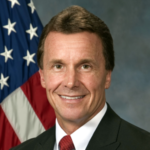
Plenary Speaker
David Lambert
Air Force Research Laboratory
– Opening Remarks –
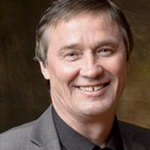
Plenary Speaker
Vladimir M. Shalaev
Purdue University
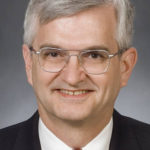
PLENARY SPEAKER
David L. Stringer
National Aeronautics and Space Administration
David Lambert Bio:
Dr. Lambert serves as the principal scientific and technical advisor to the director and is the primary authority for the technical content of the directorate’s science and technology portfolio. The Munitions Directorate leads the discovery, development, and integration of affordable warfighting conventional air-launched weapon technologies for the USAF. The directorate consists of a staff of more than 600 military, civilian, and contracted professionals pursuing a wide variety of research and development efforts in energetic and explosives, fuzes, warheads, missile seekers, guidance, navigation and control, weapon airframes, assessment methodology, and the integration of these into weapon systems.
Dr. Lambert has over 32 years in AF S&T with main emphasis in air-launched kinetic weapons. He has served on Board of Director and various leadership roles for the International Ballistics Society, Hypervelocity Impact Society and the American Society of Mechanical Engineers. He was recognized in 2011 as an esteemed Technical Fellow of Air Force Research Laboratory and in 2018 was awarded Fellow of the American Society of Mechanical Engineers. Dr. Lambert earned a B.S. in Mechanical Engineering, Florida State University, a M.S. and a Ph.D. in Engineering Mechanics, University of Florida.
Vladimir M. Shalaev Bio:
Vladimir M. Shalaev, Scientific Director for Nanophotonics at Birck Nanotechnology Center and Distinguished Professor of Electrical and Computer Engineering at Purdue University, specializes in nanophotonics, plasmonics, and optical metamaterials. Vladimir M. Shalaev has received several awards for his research in the field of nanophotonics and metamaterials, including the Max Born Award of the Optical Society of America for his pioneering contributions to the field of optical metamaterials, the Willis E. Lamb Award for Laser Science and Quantum Optics, IEEE Photonics Society William Streifer Scientific Achievement Award, Rolf Landauer medal of the ETOPIM (Electrical, Transport and Optical Properties of Inhomogeneous Media) International Association, the UNESCO Medal for the development of nanosciences and nanotechnologies, OSA and SPIE Goodman Book Writing Award. He is a Fellow of the IEEE, APS, SPIE, MRS and OSA. Prof. Shalaev has authored three books, thirty invited book chapters and over 600 research publications.
David L. Stringer Bio:
David L. Stringer is director of Plum Brook Station in Sandusky, Ohio, a 6,400 acre remote test site 50 miles west of Cleveland, for the National Aeronautics and Space Administration’s Glenn Research Center in Cleveland, Ohio. Appointed to this position on February 18, 2007, Stringer synchronizes activities at the world-class installation to support critical research and development for NASA, the Department of Defense and commercial industry to advance space exploration and global aeronautic leadership.
Stringer retired from the United States Air Force on January 1, 2007, as a Brigadier General. He was the first maintenance officer assigned to the 4477th Test and Evaluation Squadron, which flew three types of Soviet aircraft to prepare American aircrews for combat. Stringer commanded a squadron in England and a group in Italy before his final assignment as commander, Arnold Engineering Development Center, Arnold Air Force Base, Tennessee. He was stationed six times overseas for a total of 12 years and supported the 1995 air war over Bosnia as well as the 1999 Kosovo War in the Balkans.
Stringer holds a Bachelor of Science in Foreign Service from Georgetown University and a Master of Arts in history from the University of Alabama. He was one of 12 selected annually in the Department of Defense to attend Harvard’s John F. Kennedy School of Government as a National Security Fellow.
Stringer is a published author, cited in numerous professional publications and journals, including the Wall Street Journal and Aviation Week and Space Technology. His awards include the University of Alabama’s award for research and writing and many defense awards.
